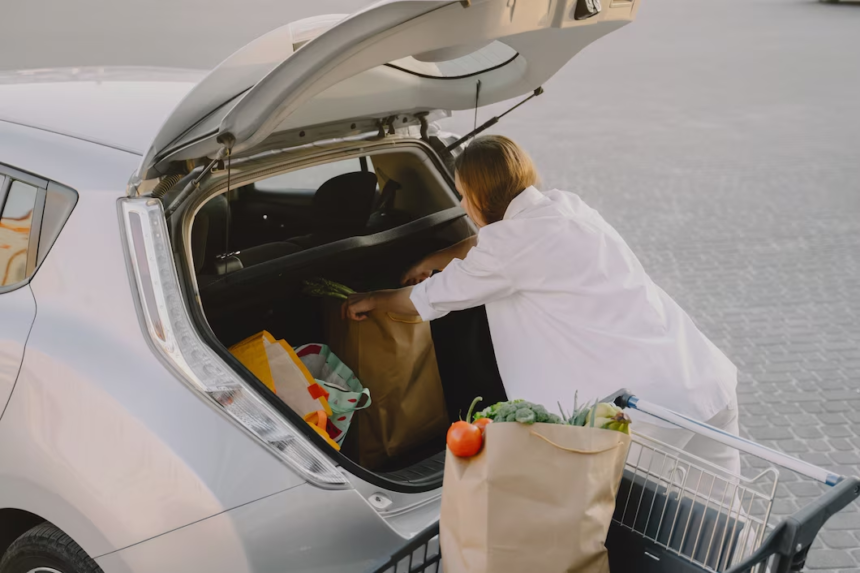Title: Understanding Car Insurance for Uber Eats and Food Delivery Drivers in South Africa
Introduction: With the rise of food delivery services like Uber Eats, many individuals in South Africa are opting to become delivery drivers to earn income. If you are considering joining the food delivery industry, it is crucial to understand how car insurance works for Uber Eats and food delivery drivers. Navigating the insurance landscape can be complex, but having the right coverage is essential to protect yourself, your vehicle, and your livelihood. In this article, we will provide an overview of car insurance for Uber Eats and food delivery drivers in South Africa.
- Personal Car Insurance and Food Delivery: Most personal car insurance policies do not provide coverage for commercial activities like food delivery. If you plan to use your personal vehicle for Uber Eats or other food delivery services, you need to inform your insurance provider and ensure that you have the appropriate coverage. Using your personal vehicle for commercial purposes without the right insurance can lead to coverage gaps and potential claim denials.
- Commercial Car Insurance: As a food delivery driver, you typically need a commercial car insurance policy to adequately protect yourself and your vehicle. Commercial car insurance is specifically designed for business use and provides coverage for accidents, theft, damage, and liability while using your vehicle for commercial purposes. It is essential to work with your insurance provider to determine the right level of coverage based on your specific needs as a food delivery driver.
- Coverage Options: When obtaining commercial car insurance for food delivery, there are different coverage options to consider:a. Third-Party Liability Insurance: This coverage protects you if you cause damage to someone else’s property or injure someone while operating your vehicle for food delivery.b. Comprehensive Insurance: Comprehensive coverage provides protection for damage to your vehicle due to accidents, theft, vandalism, or natural disasters. It is highly recommended for food delivery drivers to ensure comprehensive coverage to safeguard against potential financial losses.c. Personal Injury Protection (PIP) or Medical Payments Coverage: This coverage helps cover medical expenses for you and your passengers in the event of an accident. It is particularly important for food delivery drivers who spend a significant amount of time on the road.
- Policy Endorsements and Add-Ons: Insurance providers may offer policy endorsements or add-ons specifically tailored for food delivery drivers. These options can provide additional protection, such as coverage for food spoilage, loss of income due to vehicle damage, or roadside assistance services. Discuss these options with your insurance provider to understand their availability and potential benefits.
- Disclosure and Reporting Requirements: When applying for commercial car insurance as a food delivery driver, it is crucial to disclose accurate information about your vehicle usage and the nature of your work. Failure to disclose your food delivery activities could result in a denied claim or even policy cancellation. Additionally, promptly report any accidents or incidents to your insurance provider as per their reporting requirements.
- Considerations for Vehicle Maintenance: As a food delivery driver, your vehicle is an essential tool for your work. Regular maintenance and upkeep of your vehicle are crucial to ensure its reliability and safety. Adhering to manufacturer-recommended maintenance schedules and promptly addressing any mechanical issues can help prevent accidents and keep your insurance coverage valid.
- Insurance Cost and Deductibles: The cost of commercial car insurance for food delivery drivers varies based on factors such as your driving record, vehicle type, coverage limits, and the insurance provider. Commercial car insurance premiums are typically higher than personal car insurance due to the increased risk associated with business use. Additionally, consider the deductible amount you are comfortable paying in the event of a claim.
Conclusion: As a food delivery driver in South Africa, understanding car insurance is vital for protecting yourself and your vehicle. Personal car insurance policies generally do not cover commercial activities, so it is essential to obtain the right coverage through a commercial car insurance policy. Work closely with your insurance provider to determine the appropriate coverage options, policy endorsements, and add-ons for your specific needs as a food delivery driver. Remember to accurately disclose your vehicle usage, promptly report incidents, and prioritize regular vehicle maintenance. By being proactive in securing the appropriate insurance coverage, you can focus on your food delivery business with peace of mind.










